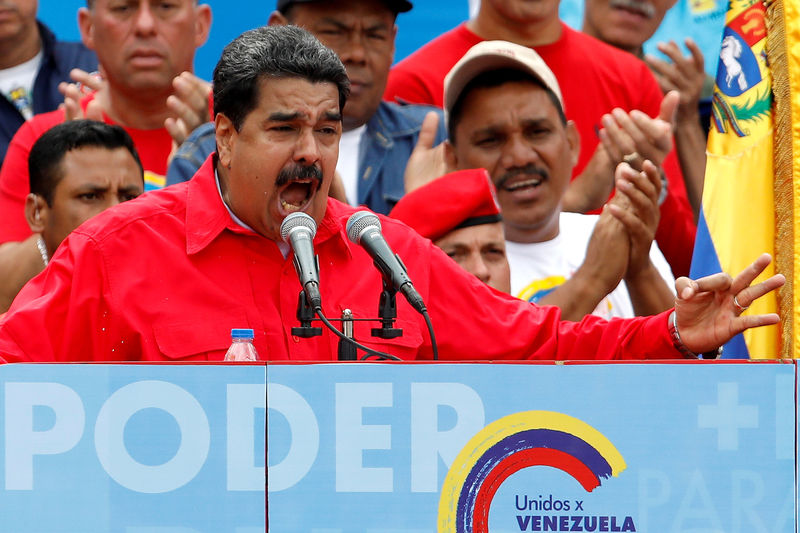By Girish Gupta
CARACAS (Reuters) - In a portend of steepening inflation in crisis-stricken Venezuela, money supply surged 10 percent in just one week earlier this month, its largest single-week rise in a quarter of a century.
Venezuela is undergoing a major economic crisis, with millions suffering food shortages, monthly wages worth only the tens of U.S. dollars, and soaring inflation -- though no official data is available.
The central bank said late on Friday the total amount of local currency in circulation -- known as M2 by economists - as of July 21 was 27.3 trillion bolivars, up 9.66 percent from the previous week.
In October 1992, the figure rose 10.84 percent in a single week.
The exponential rise in M2, the sum of cash, together with checking, savings, and other deposits, means an exponential rise in the amount of currency circulating. Venezuela's money supply is up 384 percent in the last year. In contrast, the United States' money supply is up 5.5 percent in the same period.
Coupled with a decline in the output of goods and services, that has accelerated inflation.
While M2 may seem an obscure technical indicator, the figure was routinely published by newspapers in Venezuela, whose oil-dependent economy has been dogged by inflation in the past.
Venezuelans are forced to carry huge bundles of cash to make basic purchases - if they can afford to do so given weekly price rises on many goods.
This week also saw Venezuela's black market exchange rate surge past 10,000 bolivars per dollar.
When President Nicolas Maduro came to power in April 2013, it was at 24 per dollar.
A thousand dollars worth of local currency then would be worth just over $2 now.
Maduro says he faces an "economic war" waged by the opposition and Washington.

The last year for which official inflation data is available from the central bank is 2015, when consumer prices rose 181 percent.